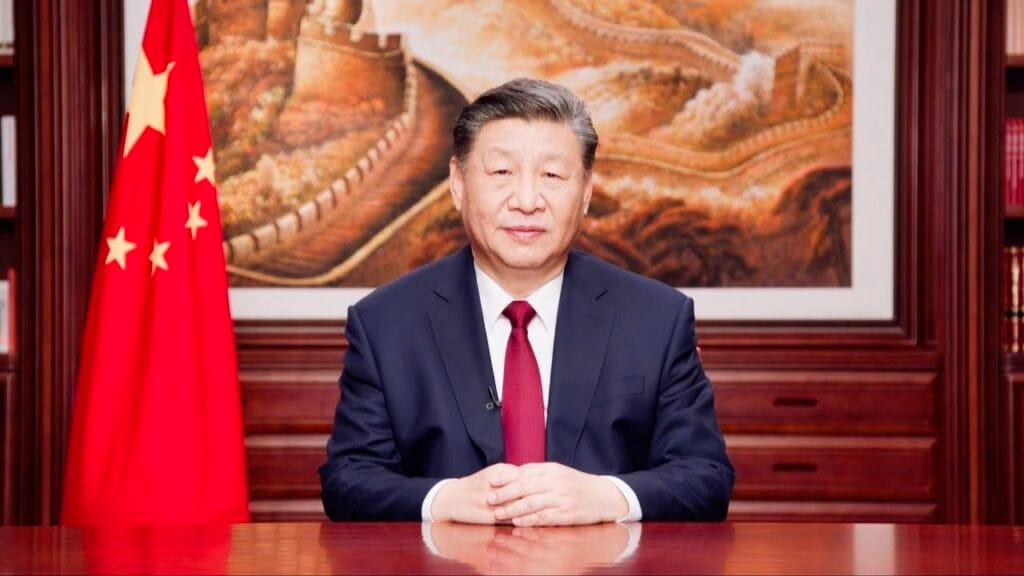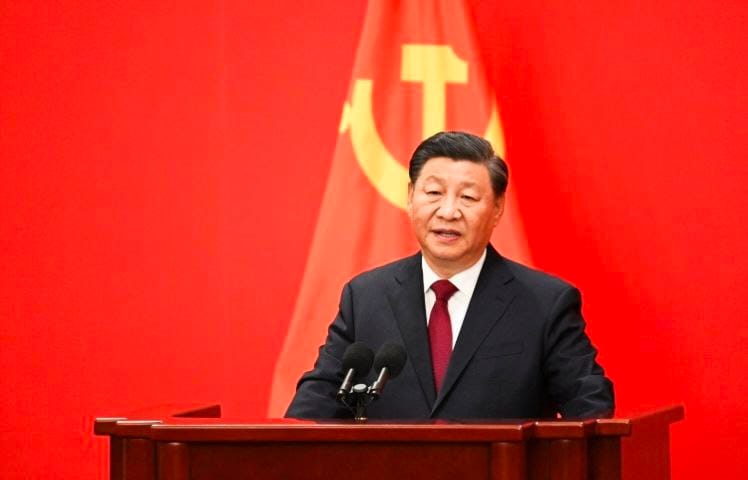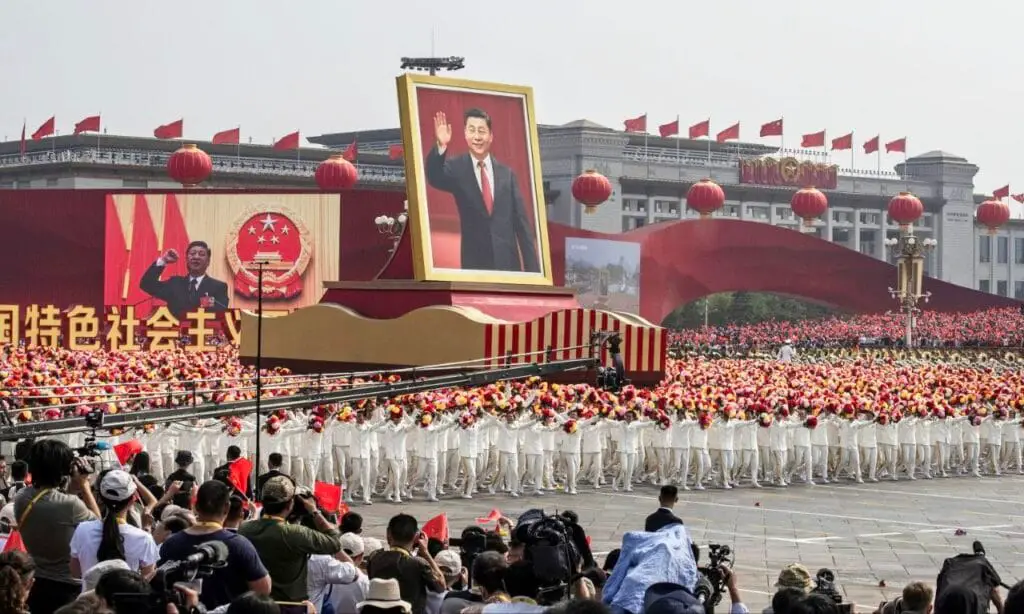
The President of the People’s Republic of China (PRC) is the head of state and holds a ceremonial yet influential role within the country’s political system. The President’s powers and functions are closely tied to the broader governance structure of the Communist Party of China (CPC) and the state apparatus, making the role symbolic of national unity while holding significant political influence when the officeholder also holds other key positions, such as General Secretary of the CPC and Chairman of the Central Military Commission.
Here is an overview of the powers, functions, and position of the President of China :

1. Powers of the President of China
The President’s powers are derived primarily from the Constitution of the People’s Republic of China. Though largely ceremonial, the President wields considerable influence when combined with other leadership roles.
a) Appointing and Dismissing State Officials
- The President formally appoints and removes high-ranking government officials based on the decisions made by the National People’s Congress (NPC) or its Standing Committee. These officials include the Premier (head of government), Vice Premiers, ministers, and other important figures in the State Council.
b) Issuing Laws and Orders
- The President has the authority to issue laws, decrees, and orders passed by the NPC or its Standing Committee. The President promulgates laws passed by the NPC, which is a ceremonial duty that formalizes the legislative process.
c) Signing Treaties
- The President represents China in foreign diplomacy and can sign treaties, agreements, and accords with foreign states. However, the actual negotiation and formulation of these agreements are typically handled by the State Council and the Ministry of Foreign Affairs.
d) Granting Pardons
- The President has the constitutional power to grant pardons to prisoners, though this power is rarely exercised independently and is subject to approval by other branches of government.
e) State Visits and Diplomacy
- The President acts as the formal representative of China in diplomatic matters and can make state visits to other countries. The President also receives credentials from foreign ambassadors and represents China in international forums.
f) Declaring a State of Emergency
- In coordination with the NPC or its Standing Committee, the President has the power to declare a state of emergency during times of crisis or national threat, such as during natural disasters, military threats, or political unrest.
g) Commanding the Armed Forces (Indirect)
- While the President is not the direct commander-in-chief of the military, the office is closely linked to the leadership of the Central Military Commission (CMC), which controls the People’s Liberation Army (PLA). If the President also holds the title of Chairman of the CMC, they have significant authority over China’s military operations and defense policy.
2. Functions of the President of China
The functions of the President are a mix of ceremonial duties and formal administrative tasks. While the role itself is primarily symbolic, the individual holding the office, particularly when also the General Secretary of the Communist Party, exercises considerable de facto power.
a) Ceremonial Head of State
- The President serves as the symbol of national unity and sovereignty. The role is largely ceremonial, and the President is the face of the nation both domestically and internationally.
b) Promulgation of Laws
- The President promulgates laws passed by the National People’s Congress or its Standing Committee, acting as the formal executor of legislative decisions.
c) Appointing the Premier and Government Officials
- After the NPC elects the Premier and other senior officials, the President formally appoints them. This is a largely procedural function but critical in formalizing leadership transitions and appointments.
d) Signing National and International Agreements
- The President signs major state documents, including domestic orders, laws, and international treaties, ensuring China’s formal commitment to agreements made in the international arena.
e) Foreign Affairs and Diplomacy
- The President represents China in international relations, receiving foreign dignitaries, hosting state visits, and participating in international organizations like the United Nations. Diplomatic engagement by the President reinforces China’s global standing and foreign policy objectives.
f) Military-Related Functions
- If the President also serves as the Chairman of the Central Military Commission (CMC), they hold significant power in commanding the People’s Liberation Army (PLA) and setting defense policy. The dual role of President and CMC Chairman centralizes military and state authority in one individual.
g) National Honors and Titles
- The President has the power to confer national awards and honorary titles on individuals and groups for their contributions to the state or society. This function helps promote patriotism and recognition of achievements.

3. Position of the President of China
The office of the President holds a unique position within China’s political hierarchy. While the Constitution defines the role primarily as ceremonial, the President often holds significant power due to their simultaneous role in the Communist Party and military.
a) Tied to Other Leadership Roles
- In practice, the President of China is almost always the same individual who holds two other key roles: General Secretary of the Communist Party of China (CPC) and Chairman of the Central Military Commission (CMC). This ensures that the President has comprehensive control over the Party, the military, and the state, creating a concentration of power in one person.
b) Head of State
- As head of state, the President represents the unity of the nation. This position is largely symbolic but important for maintaining the ceremonial continuity of governance. The President represents China’s national identity and sovereignty.
c) Role in the Communist Party
- The actual power of the President largely stems from their role as the General Secretary of the Communist Party, which is the most powerful position in China’s political system. The President’s influence is derived from this role, which controls Party policy, ideology, and internal affairs.
d) Limited Constitutional Role
- Constitutionally, the role of the President is relatively limited compared to the Premier, who leads the State Council (the government) and handles day-to-day governance. However, the overlap between Party and state leadership amplifies the President’s influence.
e) Influence in National and International Policy
- Due to the dual role of the President as head of state and party leader, they exert significant influence over both domestic and foreign policy. The President often serves as the key decision-maker on critical national issues, such as economic reform, security, and foreign diplomacy.
4. Conclusion
The President of China serves as the head of state with primarily ceremonial duties under the Constitution. However, the role is significantly elevated when the President also holds the positions of General Secretary of the CPC and Chairman of the Central Military Commission, creating a concentration of power that allows the President to wield substantial influence over China’s government, military, and foreign policy.
While the President’s formal powers are limited by the Constitution, the broader political and leadership roles they occupy make the officeholder a dominant figure in Chinese politics.